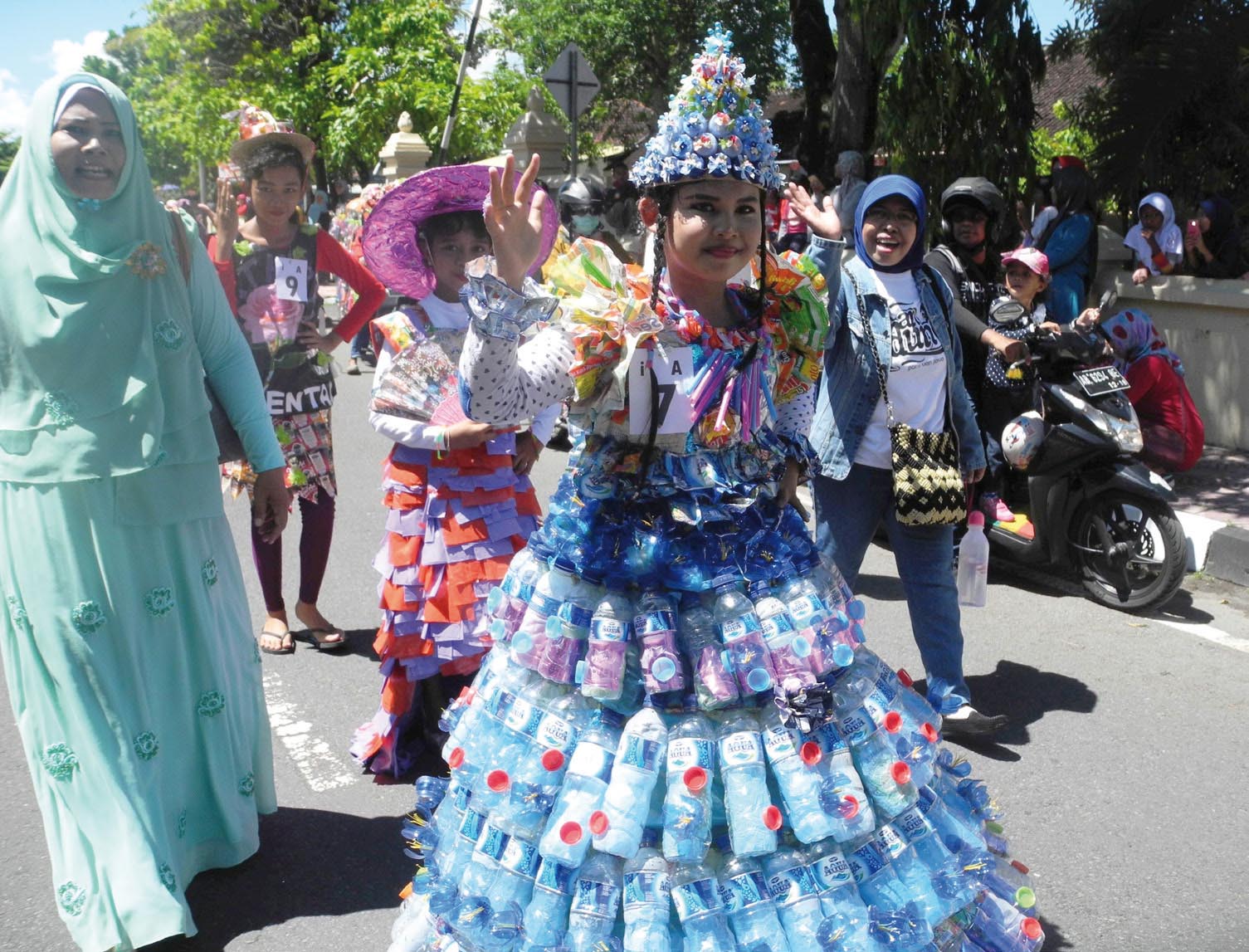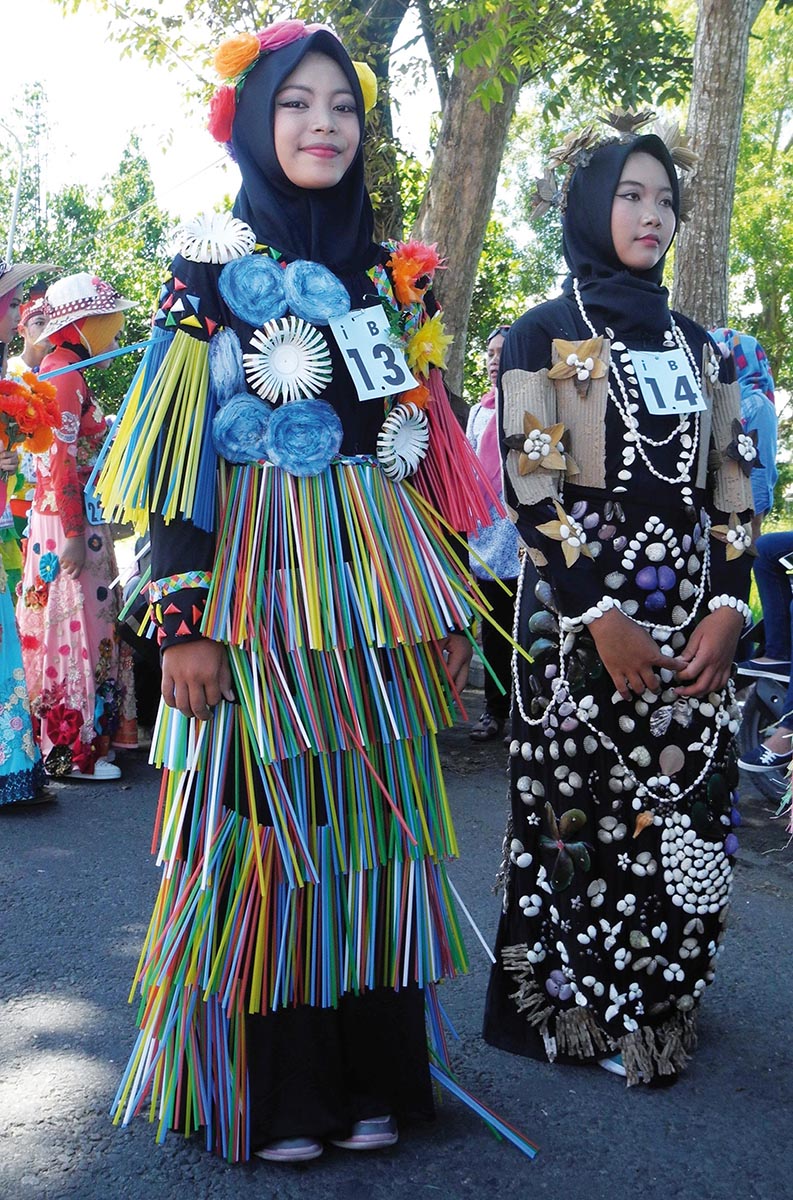Waste and social mobilisation. Anthropological explorations beyond Asia and Europe
Waste, especially plastic and toxic waste, is a man-made disaster rooted in the historical relations between humans, materials, and environments. The global waste trade is a multi-billion-dollar industry in which Western countries relocate their waste to the Global South, turning the land, oceans, and atmosphere into dumping grounds. This waste problem challenges the notions of growth, modernisation, and human-nonhuman relations. There is a need for global solutions that overcome binary frames of representation such as 'Asia' and 'Europe'. An inclusive approach, as well as engagement in mutual transformations, requires increased global environmental awareness and transregional collaboration. However, awareness does not automatically translate into action. Furthermore, emerging global environmental regimes tend to ignore local diversities in waste practices, related worldviews, and ways in which people are mobilised to think about and act on waste solutions. Waste is always embedded in social, gendered, and political asymmetries and economic contestation. Furthermore, it is tied to peculiar moral sensibilities. Differences in context, thought, and practice, as well as in socio-environmental relations and frictions, should thus be acknowledged as bases of mobilisation and collaboration.
In order to illustrate such differences, I will present an example of locally specific waste-related social mobilisation. The central question here is: what are the main driving forces for bottom-up, communal recycling initiatives in rural and urban Java? This study is based on field research in Java in 2017 and 2018, partly conducted together with my colleague Vissia Ita Yulianto.1
Rationalist approaches
Recently, the Indonesian media has regularly reported on the government's efforts to return containers of toxic waste and trash to their countries of origin, including the United States, Australia, and several European countries. This may change the hitherto widespread public, scholarly and media discourse in Indonesia, which focusses on the 'bad' behaviour of the Indonesian people. For example, one 2015 study identified Indonesia as the second-largest contributor to plastic waste in the oceans (after China).2 Indonesians have been blasted for improperly discarding their garbage, yet burning waste, burying it in underground, and dumping it into rivers that carry it to the sea, are behaviours that really only became problematic after the introduction of new, non-degradable materials. Packaging, clothing, furniture, toys, and many more everyday items that are readily discarded once they are no longer needed, are now made of or contain plastic. When we talked to people in Yogyakarta, Bantul, and Gunung Kidul about the effects of their habits and the fact that environmental degradation is rapidly increasing in Indonesia, or when we mentioned the immediate danger of toxic fumes from burning plastic, the usual answer was "tidak apa-apa" [it doesn’t matter], "there is still enough land", or "it is just practical to burn the rubbish". Some people blamed the government for not providing better facilities or complained that they would have to pay a small fee for public garbage disposal. A majority of Javanese perceived other everyday problems to be more important.
As with other external projects that are often based on education, information-based arguments that rely on numbers, and which transfer the responsibility to the, allegedly, 'uneducated' people, are not effective. Western recycling practices, propagated as modernising projects and means of development, do not concern them. Even though environmental and waste-related education has recently become integrated in school and pre-school curricula, and even though public institutions such as universities prohibit (for instance) plastic bottles for drinking water, these efforts have yet to significantly affect public indifference. The Javanese continue to buy 'modern' or 'practical' things that are made of or wrapped in plastic, without caring about their disposal. As such, the dissemination of information on the detrimental effects of waste will not necessarily generate a less consumptive lifestyle.

Participants of the Recycle Fashion Carnival, with outfits made from recycled materials (Bantul, 2018). All photos by Judith Schlehe.
Considering waste is a problem that accompanies consumer capitalism and economic growth, this study finds that neither an environmentalist nor a rationalist approach is very helpful if one tries to understand waste behaviour and attitudes in Java. Moral and social dimensions are much more important. The Javanese people wish to protect their social reputations and many decades of government programmes have linked personal and social hygiene. Place-based approaches are thus necessary to mobilise citizens to think about and act on waste solutions in their communities.
Moral reasoning and communal initiatives
This moral orientation towards the social environment is also a strong driving force when it comes to communal initiatives that strive to implement greater public engagement in waste management, for instance sorting. Many kampung [villages] have weekly community service clean-ups [kerja bakti] that are propagated by the government as part of the traditional system of non-monetary mutual assistance [gotong royong]. At times, the government, working together with private and civil society actors as well as religious communities, has also sponsored collaborative initiatives that reach beyond the kampung level. This matches with Tsing's observation that environmentalism often generates unexpected social collaborations that bring different political cultures together.3 However, our impression also corresponds clearly with a study by Tanu and Parker in Surabaya,4 which found that students join environmentalist activities not so much due to their environmental awareness but because of the fun of socialising and doing things together.
As there is a need for locally owned and community-driven solutions, a noteworthy initiative in dealing with waste is the bank sampah [waste/garbage bank], a community bank system. It began in 2008 and was developed to address the crisis of waste produced by local communities in Yogyakarta. Sorted garbage (papers, plastics, metal, and in some banks also glass, cooking oil, and wet, compostable garbage) is deposited at certain collection points, it is then weighed, and a credit is subsequently recorded. This system relies on locals sorting their garbage and 'banking' it. Once a year, often before Idul Fitri, the celebratory feast at the end of the fasting month (when people need money), the recorded credit is paid out.5 The money comes from the sale of waste, sold by the bank sampah to entrepreneurs [pengepul] who take it to big factories. After all, the waste trade is good business and many people can make a living from it.
Bank sampah are usually managed by local activists, and practical work is most often performed by female volunteers. Stressing the economic advantage of waste separation, the bank sampah system has also been adopted by religious organisations, by Unilever and Shell Indonesia as a means of demonstrating 'corporate social responsibility' (critics would rather say ‘greenwashing’), and by the Indonesian government as the currently best way of dealing with waste. By November 2017, there were more than 5,000 bank sampah in Indonesia. The chairman of a middle-sized bank sampah explained that people are mainly motivated to take their waste to the bank not for environmental reasons, but for economic gains and social factors. These programmes are connected to the gotong royong system, which strengthens social solidarity, binds people together, and regulates the common social life. An abstract notion of nature [alam] is not an issue, he says. Obviously, people manage waste when it is in their social interest to do so.
At the same time, it should be acknowledged that in many parts of Indonesia there is a severe lack of public waste infrastructure. In spite of the Zero Waste rhetoric that promotes a sustainable, resource efficient circular economy, and despite the government having incorporated waste disposal into its national climate change strategy, implementation is still lacking. The government does not provide sufficient and appropriate facilities for household waste, let alone solid waste and sewage from mines, factories, and agricultural industries, as well as other hazardous and toxic substances such as medical and electronic waste. It could thus be asked whether the main responsibility for waste organisation or, even better, zero-waste consumption is the individual, a household, a kampung, a city, a sector of production or a country. Nonetheless, the bottom-up communal initiatives that are the focus of this article (and the related moral reasoning) are crucial for changing everyday perceptions.
Interestingly, once again, the social embeddedness of the bank sampah is crucial for their efficiency. I observed cases where volunteers lost their enthusiasm after a while and the bank had to close down. The most sustainable are those that are closely tied to the established communal structures, such as arisan (a saving, credit, and lottery scheme in Indonesian communities), PKK (the Family Welfare Empowerment Movement), and Islamic prayer groups. However, I also found cases where bank sampah were not well received by the local community, such as where they had been founded by activists who were not socially integrated and thus regarded as suspicious.

Participants of the Recycle Fashion Carnival, with outfits made from recycled materials (Bantul, 2018). All photos by Judith Schlehe.
Some banks also conduct clean-up or other waste-related events, for which they receive external financial support not only from the government agencies (such as the offices for environmental services), but also sponsors such as Unilever.6 A few bank sampah have grown to a relatively professional level. Interestingly, owing to different political attitudes, this has led to conflict at times: some activists consider it acceptable to receive money from industrial sources so long as this money is used for good purposes, whereas others associate this practice with corruption.
A carnival for recycling
In March 2018, we were able to witness an outstanding event in the small town of Bantul (the capital of Bantul Regency), namely the first 'Recycle Fashion Carnival'. Financially supported by an electricity company, several bank sampah, the Office of Environmental Affairs, and many local schools collaborated on this one-day event. Around 500 people paraded through the streets displaying colourful, richly decorated costumes made from trash: plastic bags were sewn together to make beautiful dresses, packaging materials were used to create jackets, water bottles were transformed into skirts, and drinking straws were put together to become the wings of birds and angels. Each group displayed its own creative style, with some combining fantastic costumes with Islamic headscarves and others imitating sexy pop-culture celebrities. References to a shared image of the global environmental movement ('Save the water') and mass-mediated popular culture were mixed with references to local mythology. A final performance in the public square was accompanied by music and slogans that pushed spectators to become active in and committed to the struggle against waste, and to work together for a clean environment.
This event was joyful, full of humour, surprise, and admiration for the various costumes and creations. There were no heavy moralistic lessons or rationalised threats, but rather inspiring pleas for joint efforts and a spirit of communal engagement. The carnival communicated with a new visual language by translating indifferences about waste into the language of art activism and positive forces. Strategic, aesthetic, and social goals were combined, and the passion of the initiators and actors came to the forefront even beyond the embodied and sensory experiences.7 This case corresponds with the aspect that was emphasised by the most of our interlocutors: as we have already seen in the case of bank sampah, the main motivation to sort waste and properly dispose of it is not the fear that 'nature' could be destroyed, the natural environment could become polluted or food and water might become toxic. It is gotong royong, the idea of joint efforts within the immediate community. In short, the main driving force for bottom-up, communal recycle initiatives in rural and urban Java is the social environment. Therefore, one should not expect that the described communal initiatives will have an immediate effect on consumption and waste habits. Indeed, it can sometimes be observed that participants in clean-ups or similar events use small plastic cups for drinking water and do not care at all about disposal. Nevertheless, new ideas are introduced and everyday perceptions are challenged due to the overwhelming visibility of the rubbish at certain places, the fear of disease, the worry that visitors and tourists might dislike it, the general perception of cleanliness and, most importantly, the increasing social and moral emphasis on proper waste disposal.

Participants of the Recycle Fashion Carnival, with outfits made from recycled materials (Bantul, 2018). All photos by Judith Schlehe.
All in all, the current initiatives remind us that waste is not just producing and reflecting the social and symbolic order—as we learned from Mary Douglas, who suggested that the classification of things as waste reflects the structuring capacities of cultures.8 There is also a potential for change. Civic movements can bring disparate social groups together in joint practical activities and, step by step, reorient people towards improved awareness and care.
Conclusion
No matter if a global political ecology subscribes to the notions of Anthropocene, Capitalocene, or Plasticene (referring to interactions of micro plastic debris throughout the ecosystem), there is no doubt that waste and pollution affect all humans and non-humans alike. While globalised environmentalist discourses emphasise a new feeling of entanglement with nature as a tentative path to transforming the waste problem, our fieldwork among both urban and rural citizens in Java revealed that an abstract notion of – or relation to – nature is not considered crucial by most actors. At the same time, rationalist arguments do not impress the majority of people either. Individuals are more immediately affected by their social environment. Collective problem solving at the neighbourhood level – including 'grassroots' groups, bottom-up initiatives such as community-based 'waste banks', communal 'clean-ups' and 'recycle fashion' street carnivals that address various social, economic, and emotional aspects – reflect the mobilisation of the local social and moral world. These initiatives and events bring different social groups together in joint practices and joyful performances, and they combine discursive empowerment and performative enactment.
If we wish to both understand and actively respond to environmental and waste-related problems in transregional collaboration, the most important thing is to think through the differences in thoughts and practices. Waste is always tied to morally complex, peculiar situations and sensibilities. The much-needed reduction of waste can only be achieved once we engage in both mutual understanding and in transformative ways of world-making. Social mobilisation, with the goal to change consumer-conscience, can take many paths. However, we must remember that neither morally responsible individuals nor social collectives can resolve waste problems so long as the industry continues to produce detrimental materials, and so long as the waste is an economic category of global significance.
Judith Schlehe, Professor of sociocultural anthropology, University of Freiburg. She has published widely on the topics of religious dynamics, cultural politics, globalisation and transcultural issues, gender, the anthropology of disaster, and new transnational collaborative and reciprocal research methods. Her main expertise is on Indonesia and Southeast Asia Judith.Schlehe@ethno.uni-freiburg.de